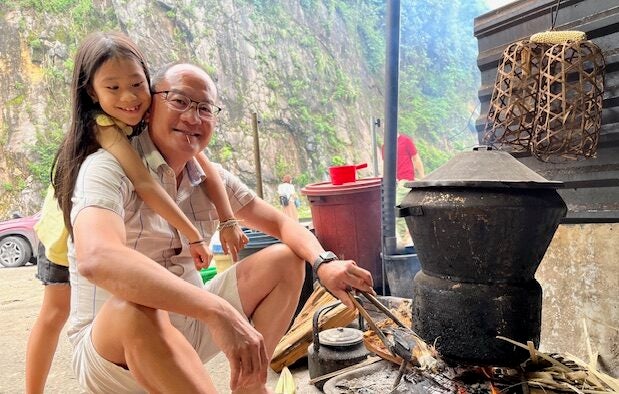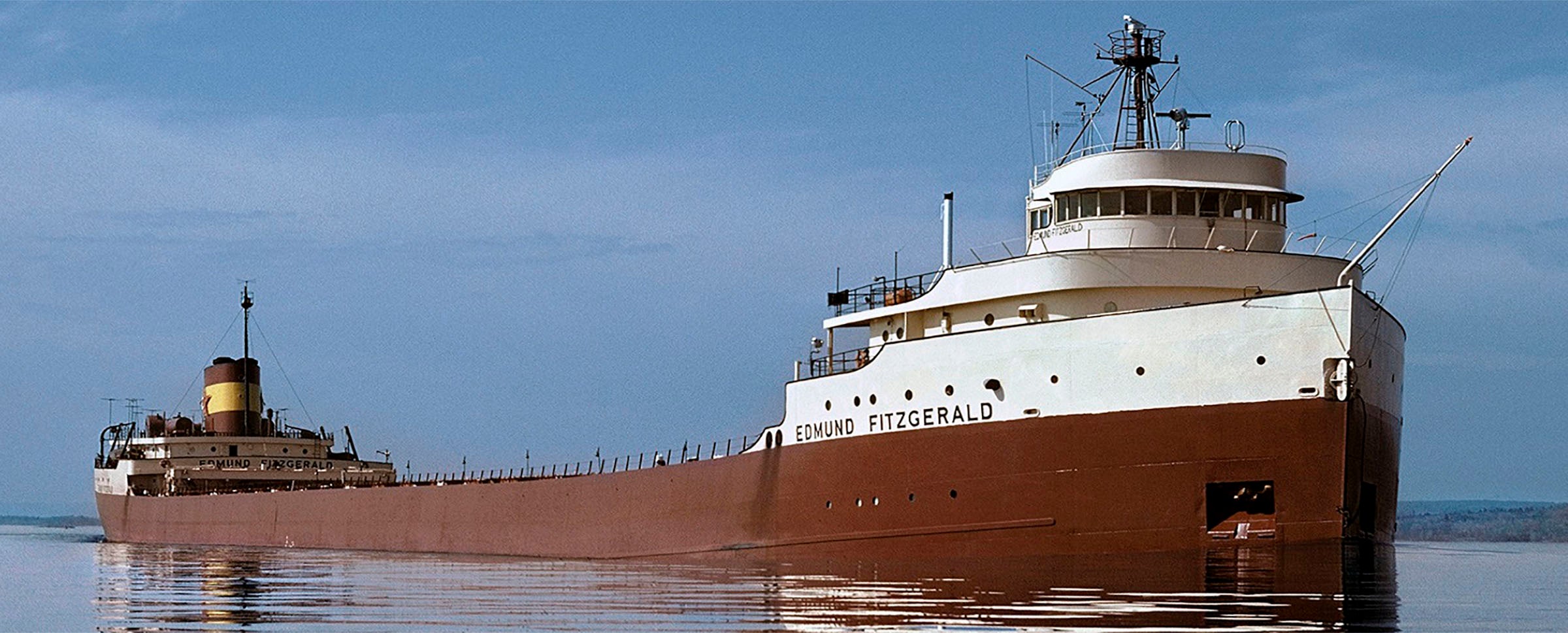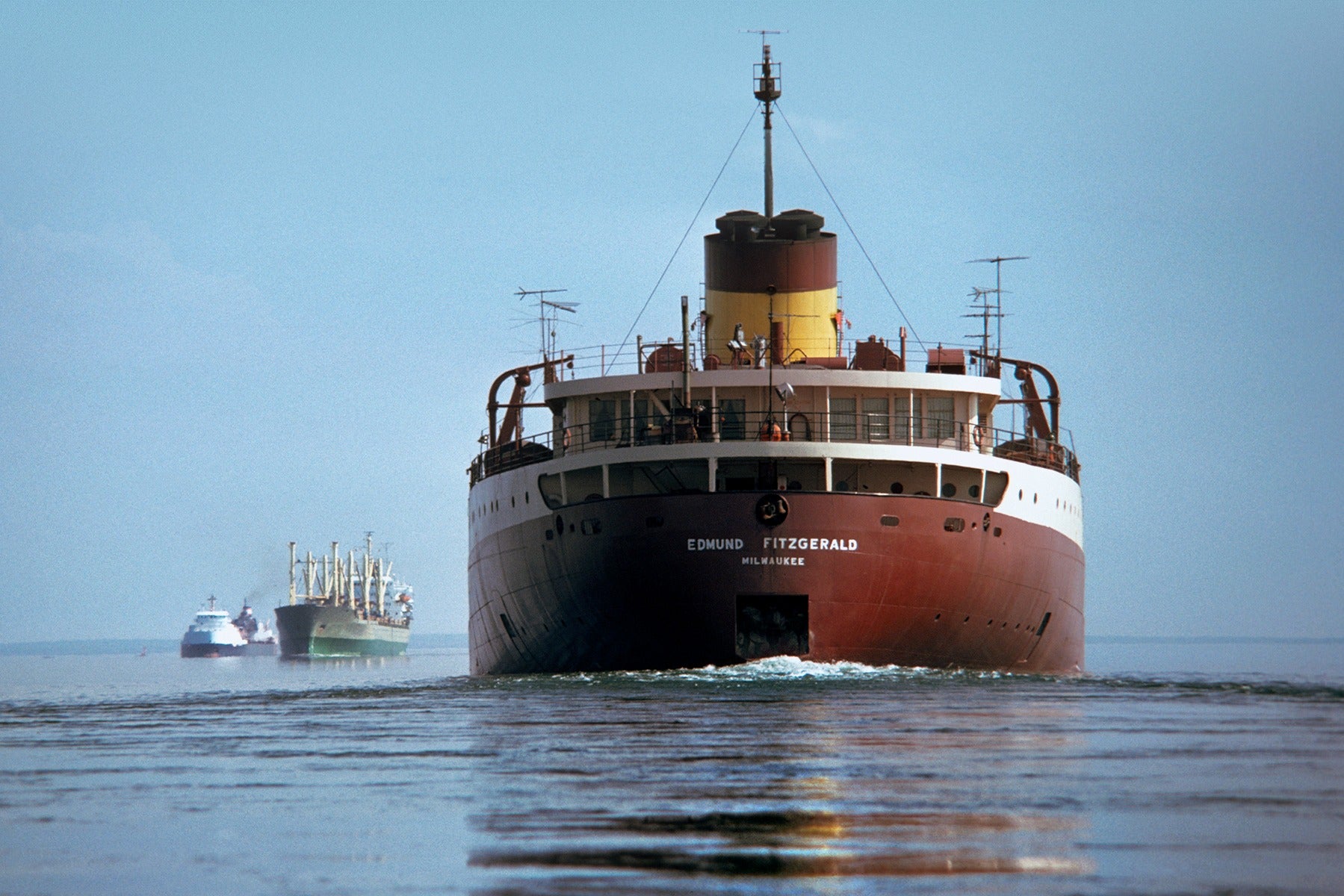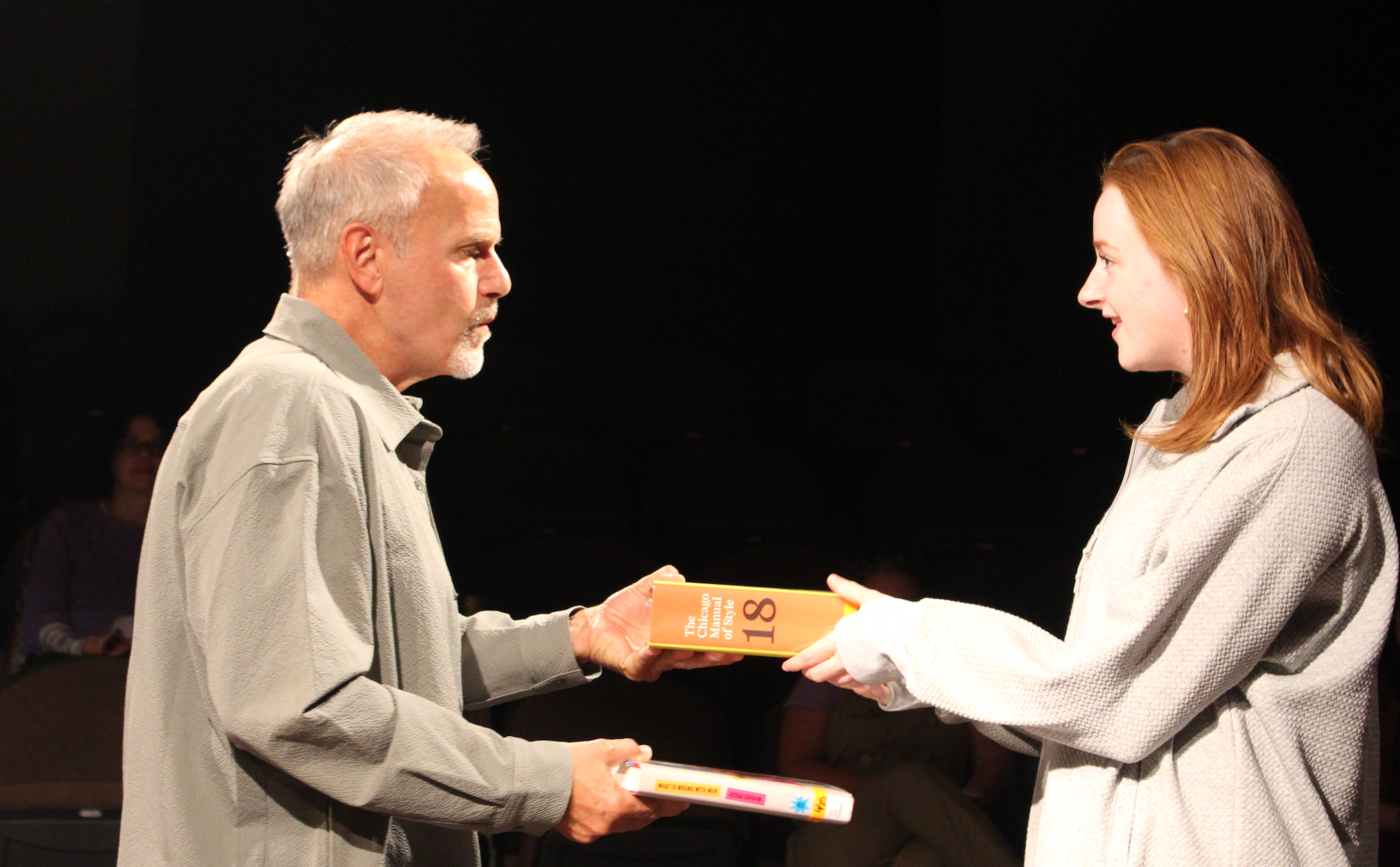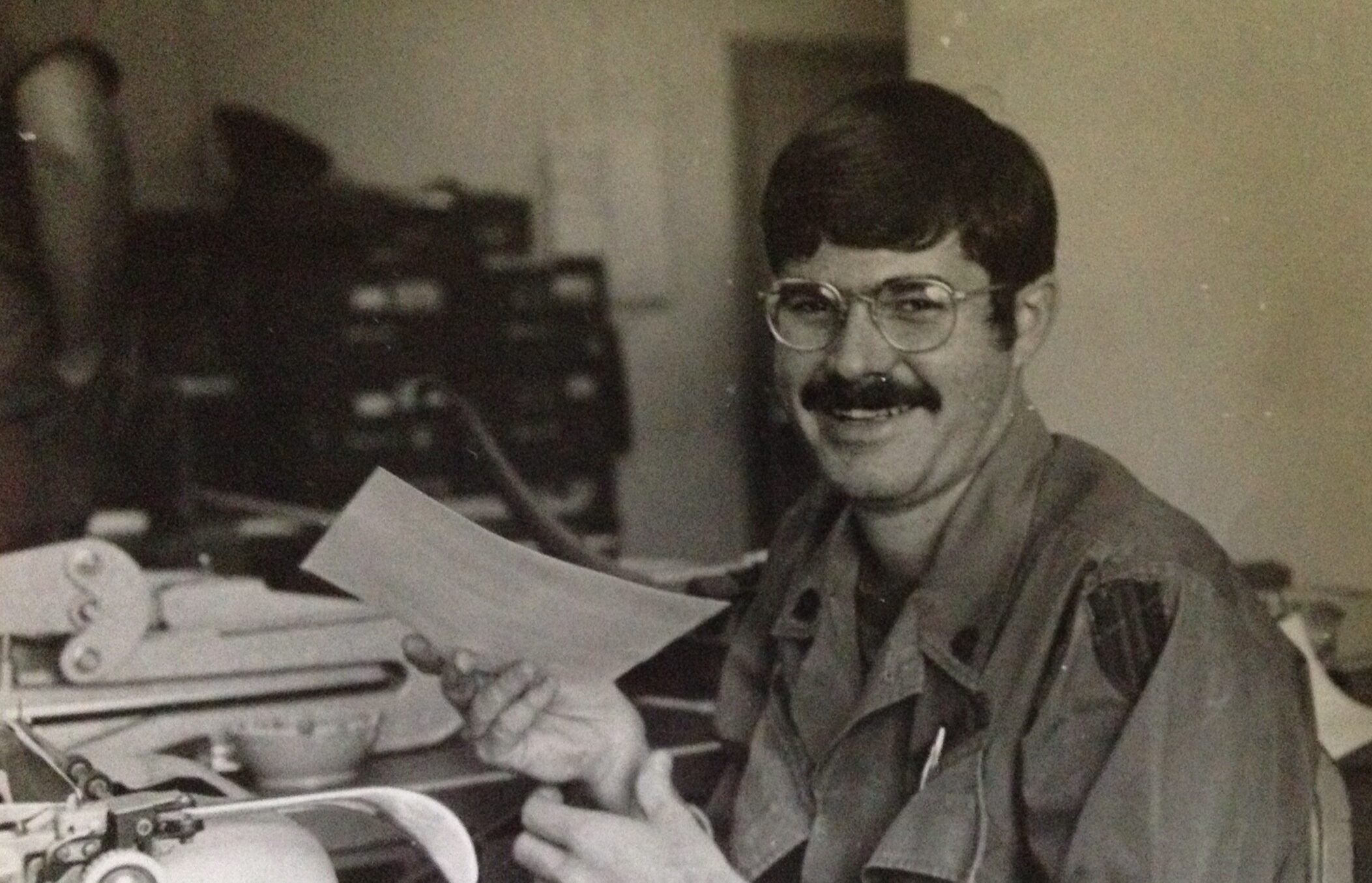Fifty years ago, on April 30, 1975, the city of Saigon in South Vietnam was captured by the North, marking the end of the Vietnam War.
Just days before, 12-year-old Tan Pham, along with his parents and three siblings, were evacuated from the war-ravaged country.
Now, 50 years later, Pham acts as a cultural ambassador, leading tour groups to experience the food and culture of Vietnam firsthand through his company, Cuisine Adventure Tours. He opertes the company from La Crosse and takes trips to Vietnam for the tours about twice a year, the website says.
News with a little more humanity
WPR’s “Wisconsin Today” newsletter keeps you connected to the state you love without feeling overwhelmed. No paywall. No agenda. No corporate filter.
“Vietnam has changed a lot,” Pham said on WPR’s “Morning Edition.” “When you go to Vietnam, you don’t see anything that will show you the war except if you want to go to the museum.”
This transcription has been edited for brevity and clarity.
Ezra Wall: What are your early memories of growing up in Vietnam?
Tan Pham: Culturally, in Vietnam, extended family like grandparents, uncles and aunts often will volunteer to take care of children in their extended family. So because my dad was in the Air Force, he’s being shipped around all over the place, all over the country. My mom owned a restaurant in the city. At that time, my parents did not want the four kids — my siblings and me — to live in the city because my dad’s not home because he’s in the service. So they shipped the four kids to my grandparents, who live about 150 miles away in a village. So that’s kind of where I grew up. My grandparents’ house is the house that I know. My parents’ house — I didn’t live there, so I really didn’t know their house.
Toward the end of the war — 1975 — the four of us were still living with my grandparents. My parents no longer wanted to be separated from their kids, so from the city they traveled to my grandparents’ house. On the way back to their house in the city, we ran into one of my dad’s friends who was in the Navy. And that friend told my dad, “I can get you onto a ship right now, but that means that you cannot go home and pack.” So instead of going to my parents’ house in the city, we left the country three days before the fall of Saigon.
EW: What was your experience of that war?
TP: To give you an example of the daily lives in the village: Every night the local militia have to go around the village and set booby traps so that the enemy cannot get into the village. In the morning, their job then is to go and pick up all of those booby traps so that the local villagers can get back out into the field and do their daily work, like raising corn, raise whatever that they do.
Well, once in a while, you would hear a boom. And what does that mean? It means that they forgot one of the traps, so it probably means that someone got killed. When I was living in the village with my grandparents, those are the things that we experienced every day.
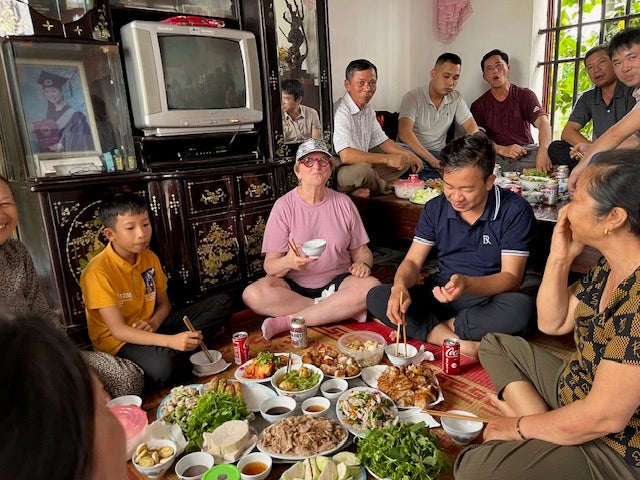
EW: Twelve years old. No warning. You don’t even get to go home to pack. All of a sudden, you’re heading to a new country. Where was the first place you came after you left Vietnam? Did you come right to the states?
TP: No. The naval ship that we were on went over to the Philippines. And of course, the U.S. naval base in the Philippines took over the ship, so at that point, the captain, the sailors, everybody on that ship became refugees.
EW: And so eventually you find your way to La Crosse, then grew up here basically after you were about 13 or 14 years old?
TP: Yes, pretty much so. When we came to the United States, we just had the clothes on our backs, because we didn’t go home and pack. We didn’t have any money. We lived in low-income housing for six months. My parents knew that we couldn’t live there forever, so both of them went out, got jobs, saved enough money to buy the house that they lived in for almost 50 years. And then us kids went to school. So I grew up going to school at Saint Pius X, Aquinas High School and then eventually came to the University of Wisconsin-La Crosse and got my degree.
EW: After you left Vietnam right before the fall of Saigon, how long was it before you were able to travel back to Vietnam?
TP: When we left Vietnam, my dad did not send word back to Vietnam that we were OK. So for a period of nine years, my grandparents knew that they said goodbye to us, but then why didn’t they hear from us for nine years? They couldn’t help but think that maybe a family of six just got wiped out somewhere along toward the end of the war.
That naval friend of my dad ran an ad in the United States. And my dad just happened to see it. It basically said, “I’m the one from the Navy that brought you into this ship. You need to send word home to your family, saying that you’re OK.” So nine years later, my dad sent word back to Vietnam that the family of six was still alive.
So I left Vietnam in 1975 and went back for the very first time with my mom in 1999. And my grandmother was so happy to see her first grandson, me, walking up the road up to her house because our loss — she thought that we were dead.
If you have ideas you would like to see us cover on “Morning Edition,” send them to southwest@wpr.org.

